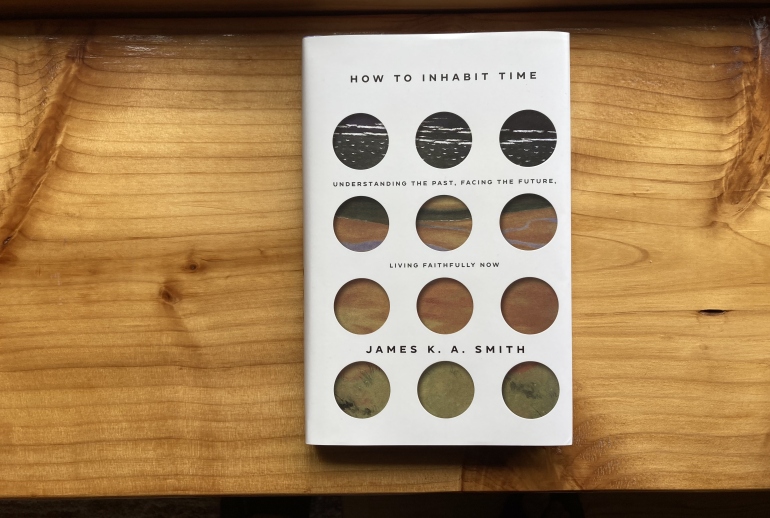Recommendation #1: Station Eleven by Emily St. John Mandel (New York, NY: Vintage Books; 2014) 333 pages.
Station Eleven is a remarkable novel about a global pandemic. Actually, that doesn’t quite capture it, so let me start again. Station Eleven is a remarkable novel set in a global pandemic about how art, creativity, and relationship are essential to what it means to be human.
The novel is exquisitely plotted, a timeline unfolding clearly not because the story is told chronologically, but because Mandel is a superb storyteller. Characters are introduced only to disappear and then appear later, little communities form and events unfold, for blessing or for curse after a virus decimates the population and everything goes dark. This is a dystopian novel, so the darkness is real, yet Mandel tells her story not for the thrills possible in a post-apocalyptic narrative but to explore what it means to be a person in the face of death, the end of civilization, and the eclipse of hope.
What is left of humanity shelters in little settlements, cut off and fearful of the brigands that roam the countryside. A band of vagabond thespians and musicians have formed the Traveling Symphony that wanders from settlement to settlement, setting up camp to perform plays and concerts in long abandoned parking lots. What’s most popular, most in demand—to the surprise of some—is Shakespeare. It seems that in his plays he touches on something so deep, so lasting, so profoundly human as to be somehow timeless. On the horse-drawn caravan in the Traveling Symphony is painted, in bold letters for all to see, “Because survival is insufficient.” It’s from Star Trek: Voyager but echoes the wisdom of the ages, and of Scripture.
Station Eleven, novelist Ann Patchett says in an endorsement of the book, is, “So compelling that I wouldn’t have put it down for anything.” I felt the same way and read it through over a couple of days, lost in the wonder of how beauty touches us so intimately in a broken world. “Mandel’s meditation on the meaning of art in a society ripped apart by loss,” writes Kathryn Reklis in the Christian Century, (2/23/2022) “is ripe for our cultural moment.”
Indeed.
Recommendation #2: “Matryona’s House” in Stories and Prose Poems by Aleksandr Solzhenitsyn (New York, NY: Farrar, Straus, and Giroux; 1971, 2015)
I’m calling attention to one short story in a collection of stories and assume you’ll read the rest if you begin with “Matryona’s House.” Aleksandr Solzhenitsyn is primarily known for his massive novels, like Cancer Ward, and his even more massive works of nonfiction, like The Gulag Archipelago. But he was also the master of shorter pieces, and “Matryona’s House” is perhaps his best.
It is a simple story of an ordinary woman who lives in a small house in an small village in the remote Russian countryside near a railroad crossing. A younger man arrives in town, the new schoolteacher, and Matryona opens her home to him, taking him in as a boarder. She is getting on in years, and relatives, some deeply embittered by events in the past, want to be certain to get what they feel is rightfully theirs when she passes. Daily life is hard, full of backbreaking labor, a diet of potatoes, ragged clothes, and just enough peat to warm the house in the icy grip of Russian winters.
Slowly, the teacher tells his story and slowly we see Matryona living out the routines that make up her days. And in those routines, we begin to see past the gossip of relatives, past the criticism of neighbors, and past the petty red tape of bureaucrats, to see reality, a person who has chosen the things that matter most.
She was a poor housekeeper. In other words, she refused to strain herself to buy gadgets and possessions and then to guard them and care for them more than for her own life.
She never cared for smart clothes, the garments that embellish the ugly and disguise the wicked.
Misunderstood and rejected by her husband, a stranger to her own family despite her happy, amiable temperament, comical, so foolish that she worked for others for no reward, this woman, who had buried all her six children, had stored up no earthly goods. Nothing but a dirty white goat, a lame cat, and a row of fig plants.
None of us who lived close to her perceived that she was that one righteous person without whom, as the saying goes, no city can stand.
Neither can the whole world.
Photo credit: the author with his trusty iPhone



